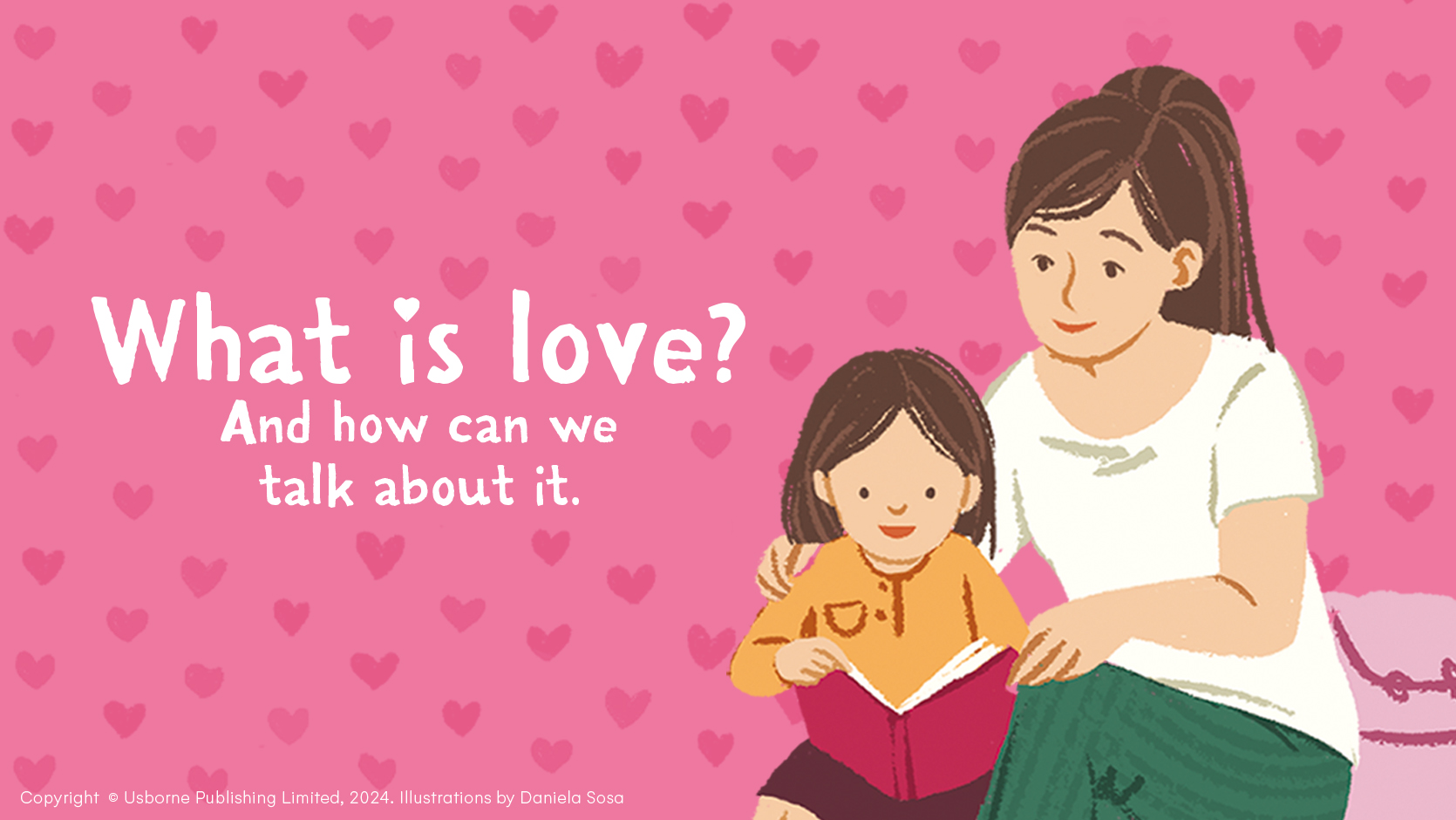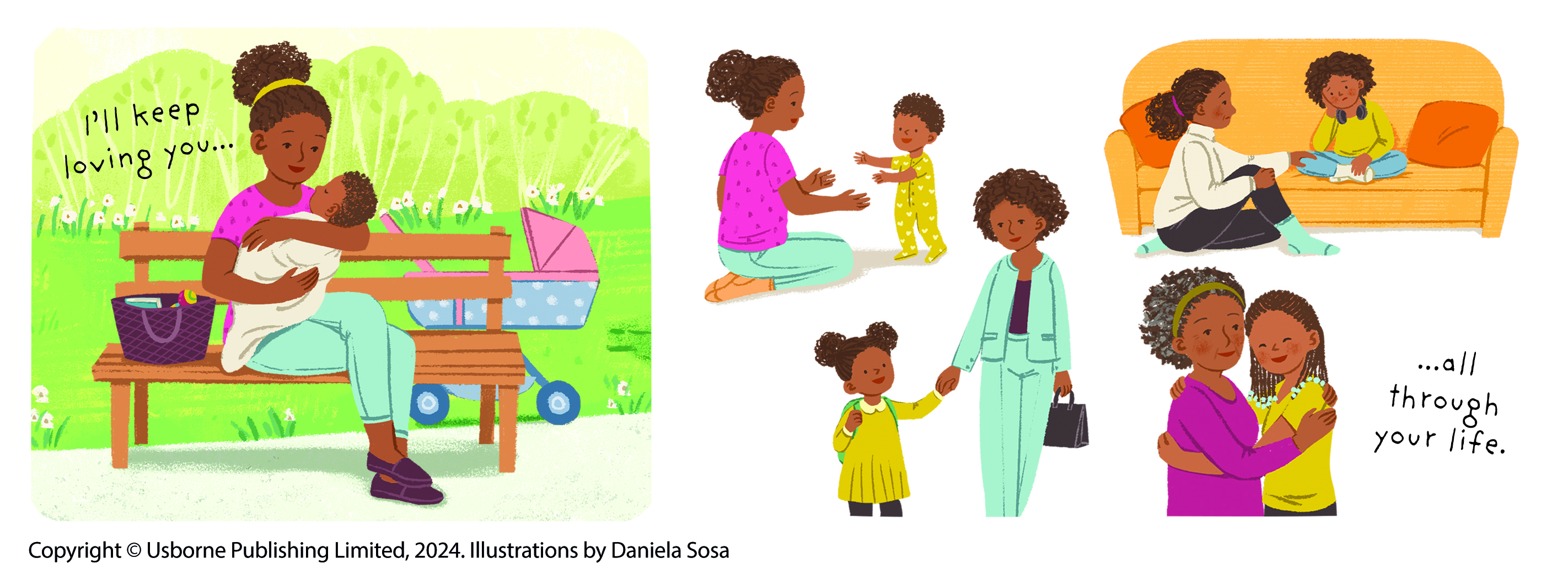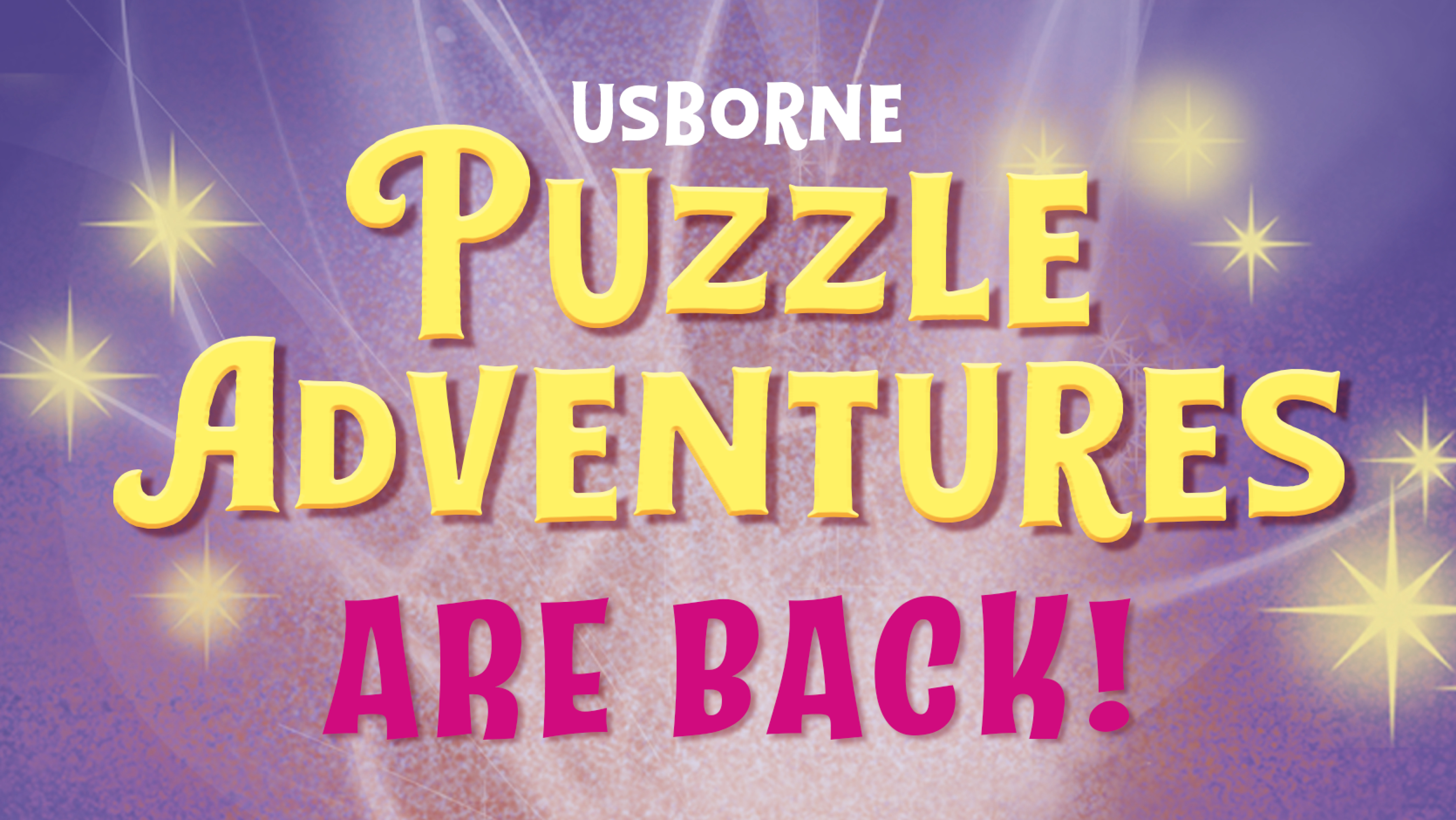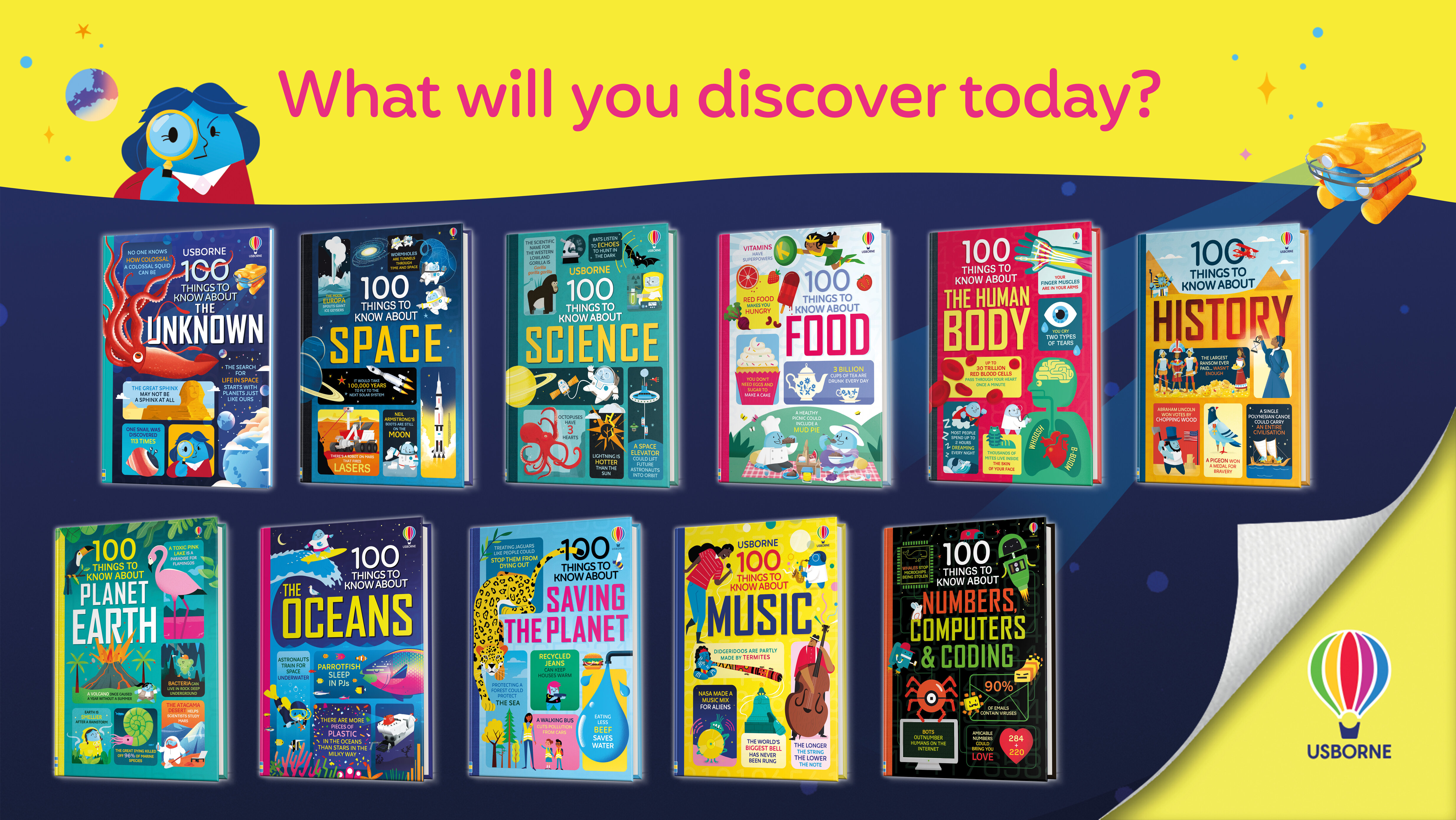- Behind the scenes at Usborne
- Tips and expert advice
How to talk to children about love

Find out how to talk to young children about love, and why it’s so important. Usborne author, Katie Daynes, shares the main lessons she learned from writing Very First Questions and Answers: What is love?
Children have an innate ability to love things, from their favourite teddy, to sitting next to their best friend, to the way their dad whistles.
For example, love is…

Children also thrive on being loved.
If we talk about love in the abstract, it seems too vague and potentially out of reach. But if we explain love by exploring simple gestures and kind thoughts in our child’s everyday world, we can reassure them how much they are loved, and how powerful their own love can be.
Through writing What is love? I worked closely with the child psychologist Dr Sasha Lillie Lyons, choosing a range of real, relatable scenarios that children can understand. These are the five main messages we wanted to get across – and ones that you might like to share with the little people in your life by reading the book together. (You could also come up with examples from your own lives.)
- You feel love when you really care about someone or something, and you show your love in the caring things you do. This could be raising money to help protect the rhinos, doing a beach clean or holding your sister’s hand so she doesn’t fall.
- Love is rarely perfect, and loving someone or something can be hard at times – especially if your brother is being annoying, your baby cousin won’t stop crying or you have to clean out your pet’s cage – but the extra effort can make your relationship more meaningful.
- Love from a parent or carer involves setting boundaries. This can be tough for both you and your grown-up, but those boundaries are there for a reason. They make you feel safe, protected and… loved.
- Describing the different kinds of love is tricky but important. Your mum’s love for you is much more powerful than her love for coffee!
- While some kinds of love can change over time, a parent’s love for their child will always be there.

Everyone experiences love differently, and the last pages of our book ask the question, “What do YOU think love is?” Why not try this out on your own child. It’s amazing what answers they come up with!
Discover other books to fall in love with, including First Magic Painting Love and Hugs, Things to Make and Do for People You Love, Bears Love Hugs, Stories of Love and Friendship, and Love, Hearts and Flowers Magic Painting Book.






